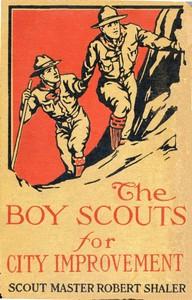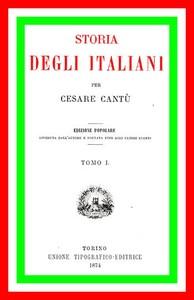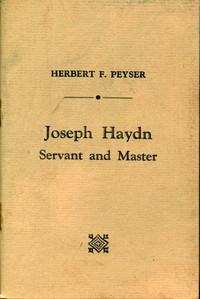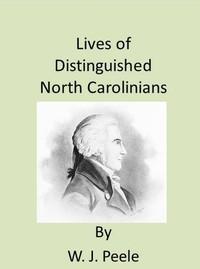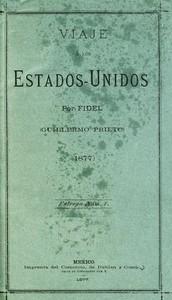Read this ebook for free! No credit card needed, absolutely nothing to pay.
Words: 23952 in 5 pages
This is an ebook sharing website. You can read the uploaded ebooks for free here. No credit cards needed, nothing to pay. If you want to own a digital copy of the ebook, or want to read offline with your favorite ebook-reader, then you can choose to buy and download the ebook.
HERBERT F. PEYSER
Joseph Haydn Servant and Master
Written for and dedicated to the RADIO MEMBERS of THE PHILHARMONIC-SYMPHONY SOCIETY of NEW YORK
Copyright 1950 THE PHILHARMONIC-SYMPHONY SOCIETY of NEW YORK 113 West 57th Street New York 19. N. Y.
FOREWORD
H. F. P.
When Mendelssohn first heard Haydn's "Grand Organ Mass" he found it "scandalously merry." Now, this work, composed at Eszterh?za in 1766, was by no means a mature effort and it might have been reasonable to ascribe its exuberance to the high spirits of a young man of uncommonly slow artistic development. But the fact is that, virtually to the end of his days, Haydn did not outgrow a joyfulness rooted in an unfaltering optimism of soul. This is not to say that his creative inspiration and originality did not enormously deepen and ramify and, particularly in his later years, foreshadow in startling fashion some of the most influential romantic devices of the nineteenth century. Yet his heart preserved unchanged that serene geniality of his youth. As much as anything else his churchly compositions disclose this trait, and even his later masses are distinguished by a good deal of that "merriment" which shocked Mendelssohn and not a few others.
"I don't know how to do it otherwise," he once told his friend, the poet Carpani, when the question of his treatment of the mass came up. "I have to give what is in me! When I think of God, my heart is so full of joy that the notes fly from me as from a spindle. And as God has given me a joyful heart He will surely pardon me if I serve Him cheerfully!" With these words he set about revising that selfsame "scandalously jolly" Mass of 1766, making it even more "scandalous" by the addition of some cheery wind instrument parts. Having finished a work and signed it, he would almost unfailingly add a pious inscription, such as "Soli Deo Gloria", "Laus Deo" or "In Nomine Domini".
One of the outstanding authorities on Haydn today, Dr. Karl Geiringer, alludes to the "deep religious sense, stubborn tenacity of purpose and a passionate desire to rise in the world" as qualities which could be found in all Haydn's ancestors, "combined with a great pride in good craftsmanship, a warm love of the soil and a healthy streak of sensuality." Certainly, his boyhood was not calculated to make of him an incorrigible optimist had not this quality been bred in his bones. Rohrau, the little town in which he was born, is an unattractive place in a flat and marshy country, where the frequently overflowing Leitha River forms a border between Austria and Hungary. The houses are low, built of clay and roofed with thatch, which often catches fire in the hot, dry summers. Dr. Geiringer tells that Haydn's house was burned in 1813, 1833 and 1899, but always restored so carefully that few but specialists could tell the difference. The place was probably no worse than other neighboring cottages and farms; yet we are told that Beethoven, in his last illness, being shown a picture of it, exclaimed: "To think that such a great man should have been born in so poor a home!" while some years later, Liszt, on catching sight of it, burst into tears.
Haydn's father, Mathias Haydn, was born in the nearby town of Hainburg; his antecedents were hard-working, honest men, farmers, vinegrowers, millers, wheel-wrights. Of musicians or artists there was not one among them. Mathias was a wheel-wright and wagon-builder, like his forebears. When he finished his apprenticeship he set out on a trip, after the tradition of a journeyman, and went, we are told, as far as Frankfurt-on-the-Main. On his wanderings he bought himself a harp. Someone taught him to play it sufficiently to accompany himself in his favorite folk-tunes, which he sang "in a pleasant tenor voice". In 1727 he settled in Rohrau, though he remained a member of the Hainburg guild of wheel-wrights. It is possible that he chose the unattractive market town in place of the more imposing and picturesque Hainburg because Maria Koller lived in Rohrau. Maria was a cook in the employ of the Counts of Harrach, the lords of Rohrau. She appears to have been a clever culinary artist At any rate, in 1728, she married the wagon-maker, Mathias Haydn, and brought her husband a dowry of 120 florins and an "honest outfit." The couple was by no means what could be called "poor" , but Maria Haydn saw to it that ends met, as they had to, considering there were twelve children . Moreover she was a model housewife and had inherited a deeply religious strain. It was her fondest wish to see her great son become a Catholic priest rather than prefer "the irresponsible life of a musician." She, alas, did not live to witness his first artistic successes. As for Mathias, who was very adequately paid for doing all sorts of odd jobs for the Counts of Harrach, his wife had the satisfaction of seeing him succeed her father in the judicial office of "Marktrichter." He was "responsible for the good conduct of the population, kept a sharp look-out for adultery and gambling; saw that people went to church and did not break the Sunday rest ... while every Sunday morning at 6 he had to report to the steward of Count Harrach" . He had a wine cellar, farmland and cattle. He and his wife were of Austro-German origin, not Hungarians or Croats.
Franz Joseph Haydn was born on March 31, 1732, the second child of the Haydn couple. In only one respect did he show himself different from his paternal and maternal ancestors--at an astonishingly early age "Sepperl" manifested musical talent. This talent took the form of a gift for singing, a lovely voice and an amazingly correct intonation, not to mention a sense of rhythm which disclosed itself in various ways. If he had no skill in playing any kind of instrument he would find himself a couple of sticks and by means of these try to "play" the violin, as he had seen the Rohrau schoolmaster do. The wonder of the neighbors became aroused, and the more "Sepperl" gave signs of other than simply manual abilities the more ardently his mother prayed that heaven might make him a teacher or, better still, a priest. For the last, the boy actually displayed a predisposition. The child had a streak of piety in him which remained with the man to the end.
Free books android app tbrJar TBR JAR Read Free books online gutenberg
More posts by @FreeBooks

: The Boy Scouts for City Improvement by Shaler Robert - Mystery and detective stories; Boy Scouts of America Juvenile fiction; Civic improvement Juvenile fiction; Urban beautification Juvenile fiction
